Opinion - . Mamba Negra Brazil Entrevista - Brazil Latinoamérica
Reading time: 13 minutes

23.08.2023
We invite curator and writer Leo Felipe to contribute to our “sentimental cartographies of ongoing brutalization” with this interview with Paulete Lindacelva: Brazilian DJ, curator, writer and researcher. Who unfolds some provocations on the political dimension of the party and its micropolitical power.

Since the separation between body and mind is an artifice of modern Western reason, the party —a space for the celebration of the body— is also a place of thought. DJ and curator Paulete Lindacelva has been thinking about the party even before immigrating to the megalopolis of São Paulo, in 2017. A racialized transvestite, Paulete left her parents’ house, on the outskirts of Recife, in northeastern Brazil, at the age of 14. She attended up to the first year of middle school (“dropping out was almost like an option to stay alive”). She entered activism through a Catholic ministry with a strong political bias, mainly for young people from the outskirts. She collaborated on a community radio station. She participated in the bohemian punk scene of Recife, where she crossed paths with intellectual figures who roamed the fringes, eventually finding her place in music and the arts. Upon arriving in São Paulo, she was captivated by the intense movement of parties in the city and began to perform in them. It’s not exactly that she liked acting as a performer, but that was the way she found to make a name for herself. In 2020, she officially joined the Mamba Negra team as a resident DJ —Mamba is one of the main electronic parties in SP. During this time, Paulete has been involved in curatorial projects, radio programs and publications, always with an impressive power of articulation. Despite her youth —she is only 28 years old— her personality conveys maturity and wisdom. Today she is one of the most beloved DJs on the scene.
Mamba Negra celebrated its 10th anniversary in 2023. The party is contemporary with the Jornadas de Junho, the series of mobilizations that swept the country in 2013 and marked the emergence of what I call “new manifestations of politics”: on the one hand, the spread of the identity debate in the public sphere with emphasis on issues of gender and race; and on the other hand, the rise of the far right, after Dilma’s legal-parliamentary coup, which culminated in the election of B*ls*n*r*. In the last decade the party scene changed a lot here in SP and in Brazil. How do you perceive these changes?
Those years were of great ethnic-racial upheaval, especially after many black people began to enter the parties. This made it urgent to have a scheme that responded to how to make said environment welcome and receive this population. What mainly changes once this happens are the identities of both the public and the artists. Who has the right to be in these environments, considering that we start from a political place? In Mamba, there has always been a political pronouncement by the girls1 who come from an academic background. Then it was understood that these demands that were pushed by a public and by artists who passed through there had to be accepted. Not only in Mamba; the main parties in São Paulo realized that this change was more than necessary.
In this sense, the role of Colectividade Namibia was very important in diversifying the underground scene in São Paulo, especially since Euvira2 was close to many producers. Euvira was largely responsible for restructuring the scene, and balancing it. She was a very important person in São Paulo during this period—we’re using the feminine gender, but she’s a mona3, a gay man from Bahia who now lives in Berlin. She urged the producers to perform a historical rescue, to understand that plurality did not exist, since the origin of what happened in these spaces was subaltern, black, while the environments were mostly white and very hegemonically masculine. I think Mamba produced that incision, because it is a party produced by women and this was already a nuisance for them. Mamba arose from a feminist perspective, but there was still a lack of criticism from raciality to understand both the Brazilian context and the historical context of the sounds that transited there.
Also, something crucial happened in the last three or four years with the change of the techno sound, when the expansion of funk came;4 it is that type of music that is sometimes contradictory and uncomfortable for those who were used to the party world and had a more elitist profile. It’s a sound that has taken over other parties at a very slow pace, but in Mamba it has expanded in an absurd way, both because people like it and because it’s even played by the girls who organize the party.
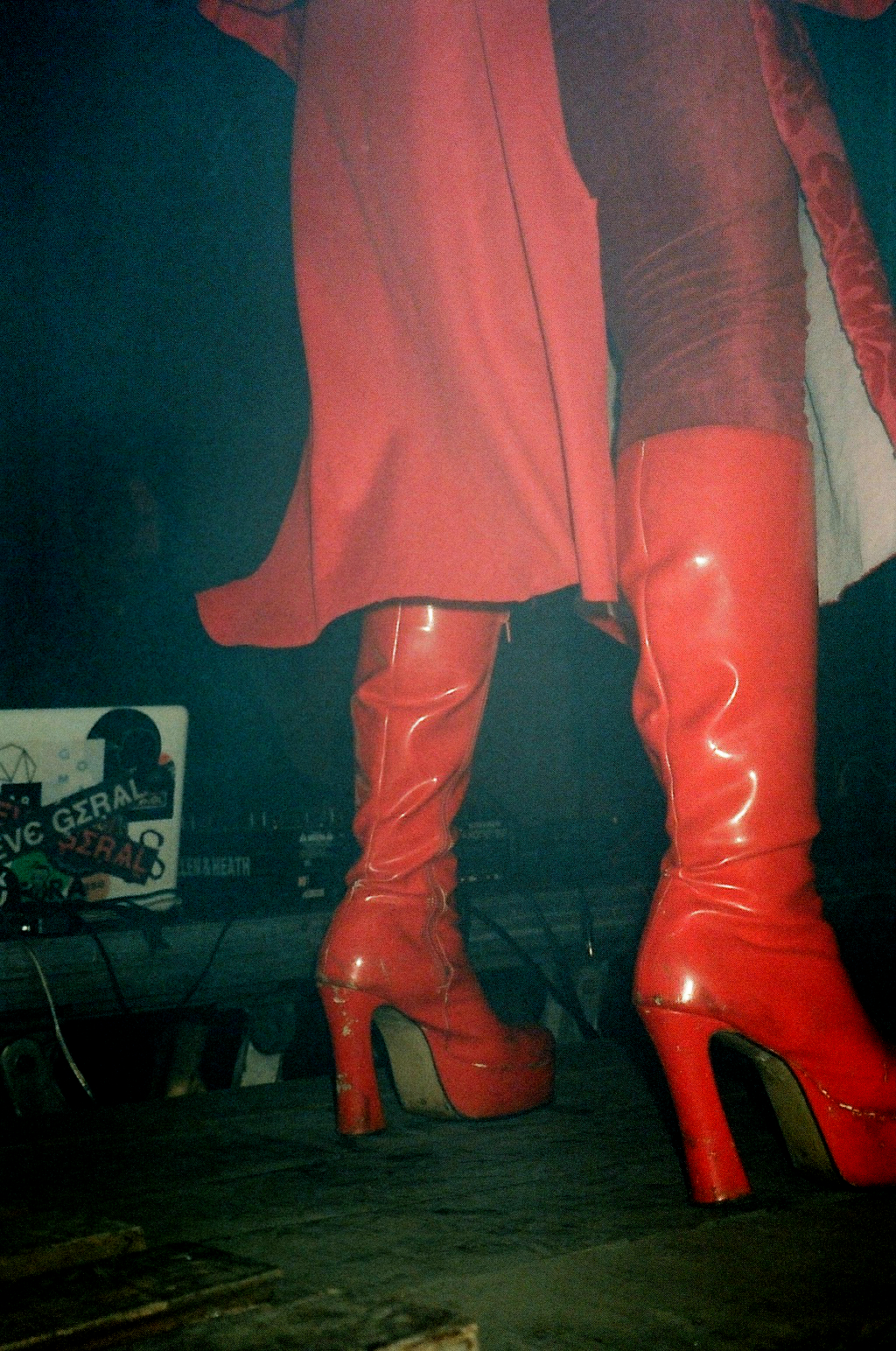
Do you think that the party can really be a space for articulation against certain forms of violence and resistance to fascism?
Yes, I think we can say that in these party environments there is a fight against fascism. It can be a place that welcomes and understands the violence suffered by certain people. It’s obviously a small thing, very micro. That is why it is important to remember that the party does not make public policy, it will create feedback mechanisms because it understands that there is a necessary political bias for those who idealize the babado5. But it is not, nor does it mobilize public policy, it will never be public policy; it is too micro for the size of a city like São Paulo —for example— which has more than 10 million inhabitants. I really believe in micropolitical work. The party is an environment where ideas move. For example, no one goes to Mamba without questioning themselves and leaving shaken. It is a guerrilla place that has an effect on many things. Perhaps we go for the body, but we also go for ideas, to find figures to exchange with you, who are there, perhaps willing to understand the new, because the new is always there. The party is the place where the new is celebrated; these new things that for many people may not represent anything new.
The festive atmosphere makes us think about the freedom of the body. They are places that celebrate diverse bodies, that celebrate bodies that deviate from the norm, that ultimately celebrate what goes against neo-fascist ideas. The right goes hand in hand with conservative religiosity, with various interests that fascism only intensifies. How do we deal with those people? Here is where Mamba’s position regarding the fear of speaking about the political dimension of the party becomes interesting. Something that is perhaps not very noticeable in the other parties; that of showing a position openly against the fascism that has been greatly strengthened in Brazil in recent years. We must not be afraid of losing an audience for saying certain things. We have to nurture an environment that becomes safe for certain people. It is well known that this population does not have money to pay for the party, so the action of covering the price is beautiful, of saying “we are going to pay the consequences”, which perhaps means that the party may not be profitable. Assuming this position and saying “we are going to support the commitment to make this environment really welcoming, to welcome these discourses, to welcome —for example— gender-neutral language in the processes of text production”. These are things that seem minimal, but they carry great weight, they create a place that is considered “queer” out there. I am not very interested in that nomenclature, but that is the great babado.
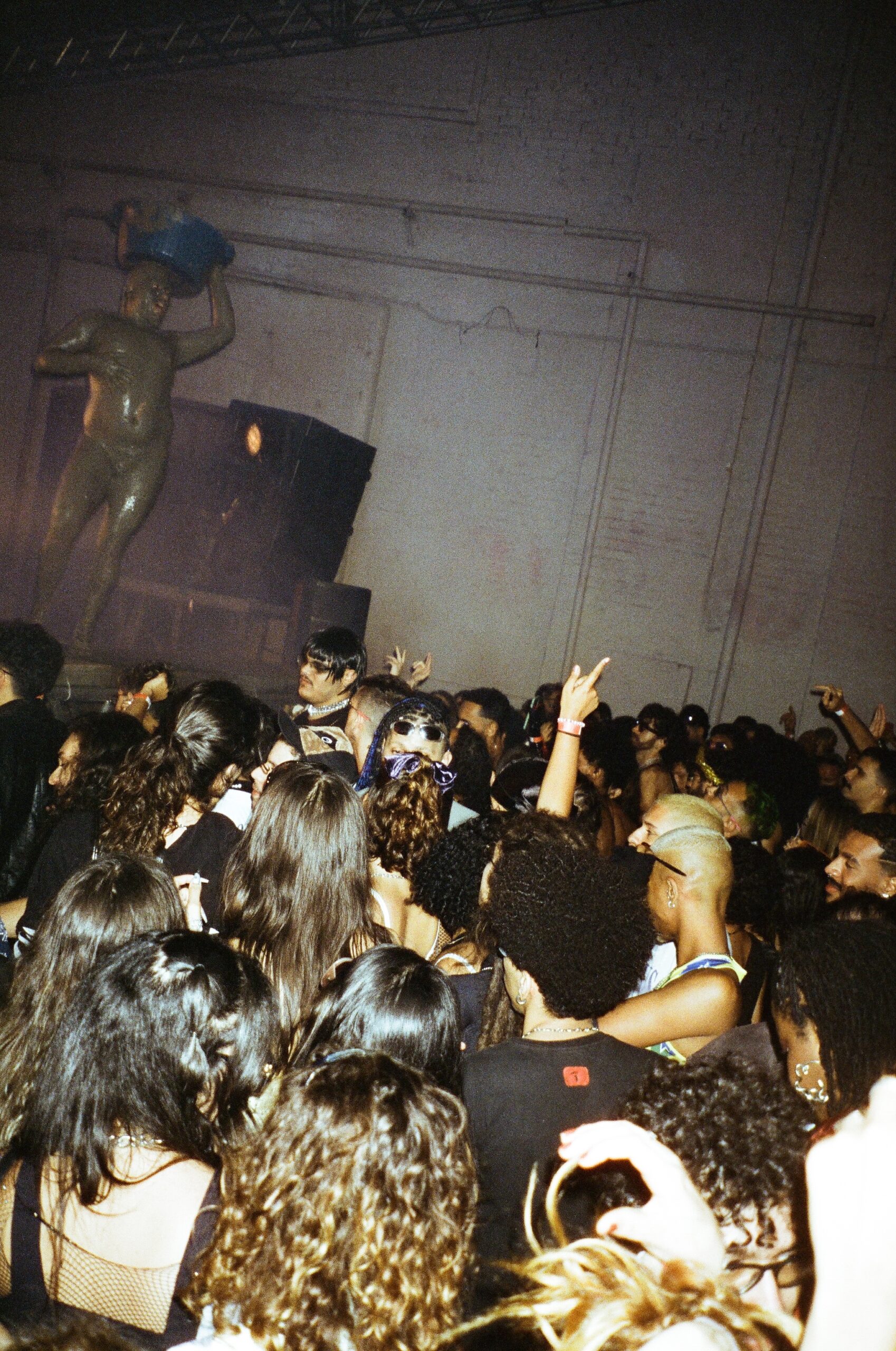
And your work with the radio and curatorship? I understand that your experience on the radio is made up of orality, of dialogue, of transmission, and it is in some way closely linked to your curatorial approach.
The radio was the place that made me pay attention to curatorship. When I arrived in São Paulo, I began to develop a program together with Coletividade Namibia. So it was on the radio that I realized that the work I do is also curatorship. My process of understanding, of relating to curatorship, has many nuances. For those of us who are racialized, poor, without schooling, there is a lot of difficulty involved. I don’t have an academic background anyway. I feel like it takes a long time to understand yourself in that position as a curator, especially coming from where I come from. So, for me it was always something very difficult. But the curatorship certainly comes from this place on the radio, from understanding who are the artists with whom I want to exchange, who I want to see, who I want to listen to, who I want to talk to.
Back in Recife, the radio station where I worked had no money, they didn’t pay me. It was the radio station for a community called Roda de Fogo, so you can already feel the atmosphere. It was mainly about the exchange with the listeners of the community. So, the responses I received in the radio chat or in the comments were from the community of listeners, mainly asking us to change the song or change the topic of conversation because they didn’t understand some of the things we were talking about. I think I can deejay because I am a good listener and this also gave me the sensitivity to understand what I want to explore within the visual arts, what are the productions, what are the works, where is the poetry of the things I want to locate. And it should be noted that, to this day, my practice involves dealing preferably with people of color and gender non-conformists.
Because in the arts in general there is a shortage of racialized people. It is obvious that we are living in another time, taking into account the discussions that are considered important and pertinent but that are cyclical within the world of the arts. However, we managed to pay attention to the figures that mobilized our narratives, because this is a frequent occurrence: work on transvestites, but someone who is not a transvestite is doing the work. There is work on black people that occurs in the same way. Today we live in constant tension. Objectification still exists, but on another scale, because we managed to give at least part of the spotlight to these people, when we managed to get them to be within these private spaces. The gallery scheme works on a logic that is not in the public interest. It is one thing to deal with a public mechanism, a picture gallery, spaces that work with public money, and another thing to deal with private institutions. It is obvious that interests go in different directions. The interest of these places in these discussions occurs from 2014/2013, when the shit that we have been experiencing until now began to happen.
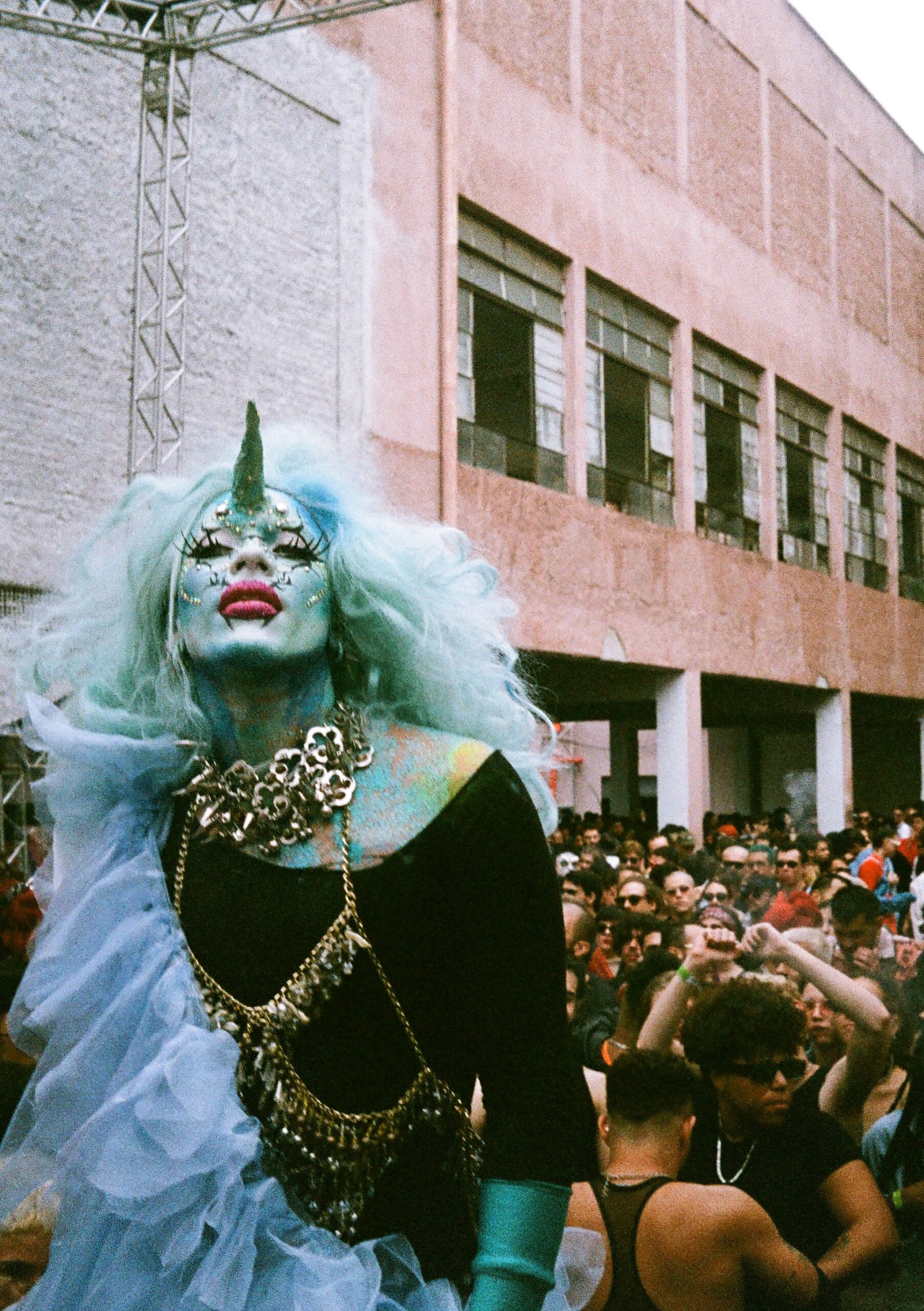
In your career as a DJ, you have had the opportunity to travel to play parties in both South America and Europe. In your opinion, what are the main differences between the two territories: the venues abroad where you have performed and the São Paulo scene, especially with Mamba, taking into account the protagonism given to diasporic bodies and transvestites?
There is a very great specificity in the Brazilian scene. Our great babado is that: the diversity of music and bodies, of identities, but not only in São Paulo. As it is customary to say among transvestites, Brazil has an elã6, a strength and a faith that is only ours. It is impossible to find something that happens in Brazil, outside of Brazil. Colombia is one of the places that I had the opportunity to travel to and that has a plurality very similar to ours. However, we are from a country of continental dimensions, so the track here is linked to all that in a very simple way. Obviously, here I am talking mainly about the underground scene, because there are always parties where those types of bodies and experiences are absent. But when it comes to the environments that we have been mentioning here, of course there is both a musical and an ethical plurality involved in the lived political experience. I have never been to a party outside of Brazil where there was house, funk, guaracha, Latin rhythms, European and North American rhythms, all at the same party. Europeans are very methodical. They can even welcome some of these specific rhythms; however, this will not happen at the initiative of the Europeans themselves. This first occurs through immigrants who bring with them the sounds that are part of their own journey. Here we find ourselves with the breaking of the linearity that insists on finding the difference in the repetitions. In that sense, there is something that Linn [da Quebrada] says, and that I find very nice: “electronic music is mainly about repetition”. And, on the other hand, both in the Latin sounds and in the productions here there is that thing about rupture/interference. What is produced here, in our territory, has nuances that are very much ours. This is especially rich because it only happens with diversity in our America.
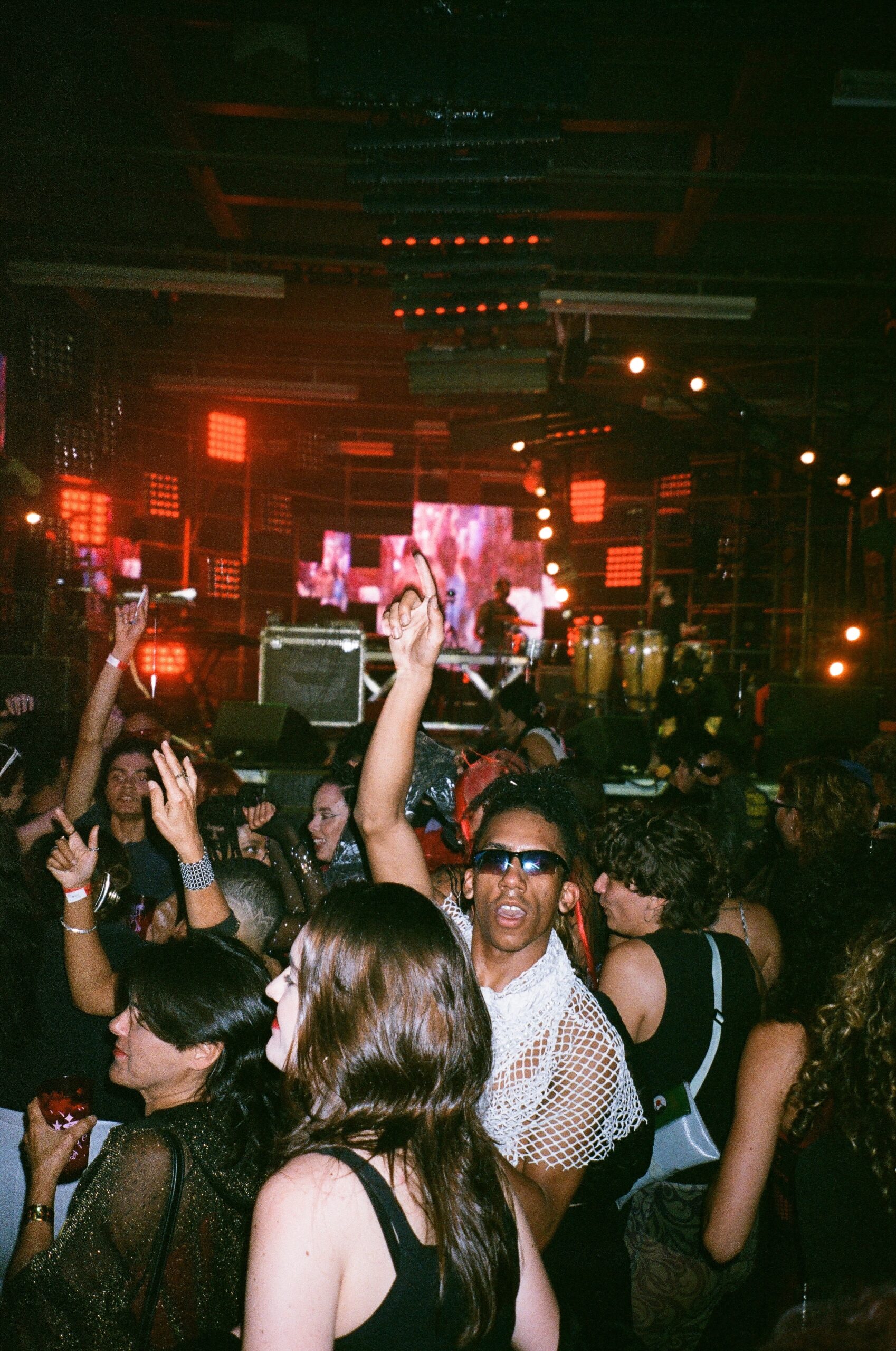
Finally, I would like you to comment a little on your repertoire. Your sets are kind of a historical journey through the golden age of dance music, and yet you’re not even 30! Why do you choose to play classic house?
I am very involved with affective memory. Those are the sounds that I heard. That’s how I remember Miami bass, hip hop, house a lot. I used to breakdance when I was more erê. These sound styles cut across each other. I remember listening to a lot of disco because of my neighbors. Therefore, I feel that groove is needed on the tracks; that thing that comes from inside our abdomen is missing. The axé7 is about that, the force that comes from the abdomen, from the belly, from the gut. I feel that black sounds have a lot of that. I am very attached to the groove of funk, to the vocals of gospel, the sadness of soul, the brass of jazz. This is a very rhythmic attachment and, at the same time, it is about something very linked to the skin: about racialization. You can’t escape the thing about skin. So, for me it has a lot to do with worship and with my ancestry, playing and bringing to the dance floor the sounds that have been produced by the black people, which for me is one of the richest things. In today’s lyrics, there seems to be a worship of money and I find that quite problematic. It saddens me to hear those sounds that are legitimized only by money. And I’m not saying that we can’t have money, it’s not that; but I recognize that previously it was a lot about lamenting who one was and the way one lived, as well as the idealization of a future. My favorite song is Joe Smooth’s Promised Land, about the promised land. It is the black sonority of the soul, of evoking what one is, of understanding our needs and fighting for them.
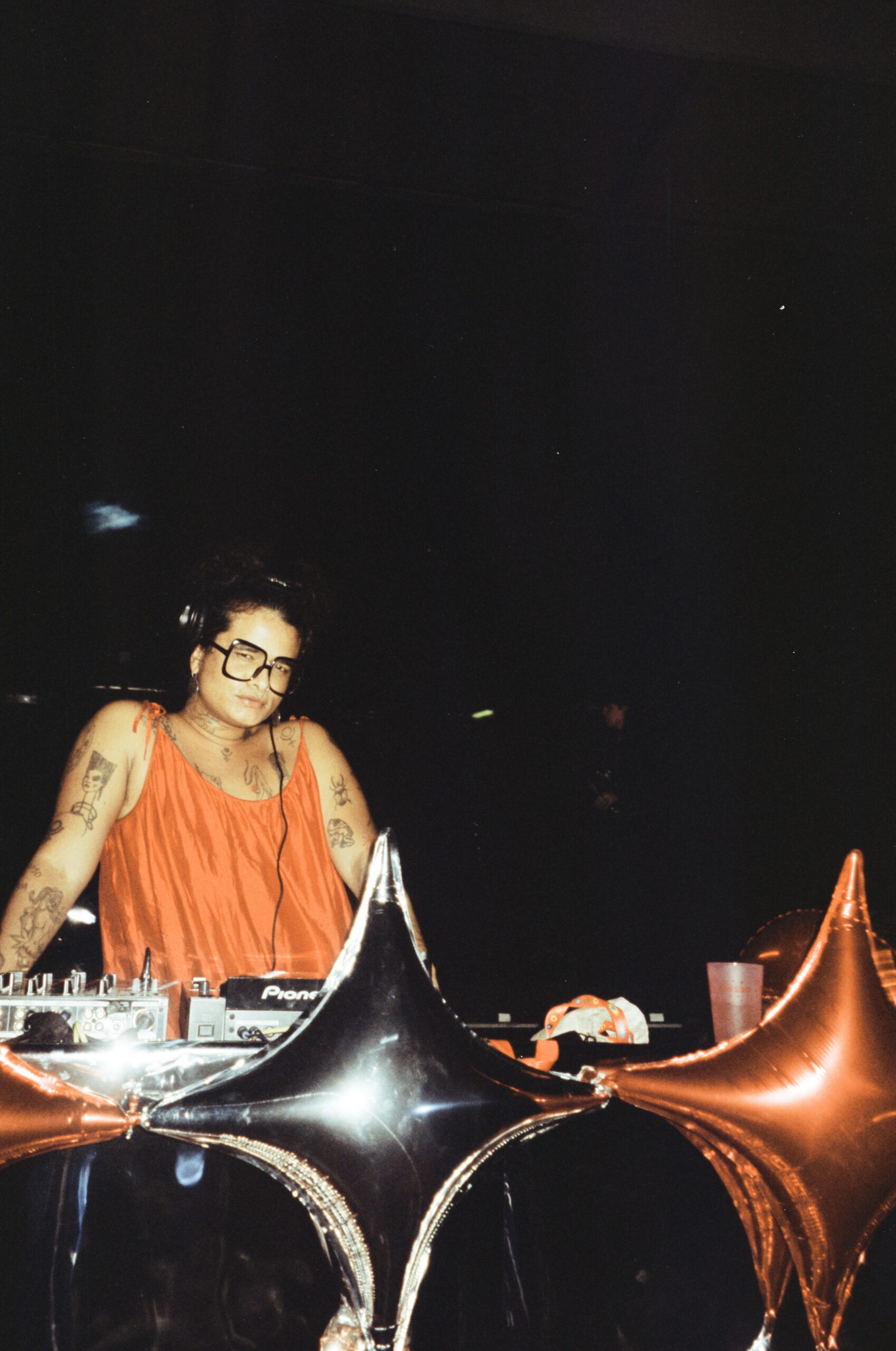
Comments
There are no coments available.